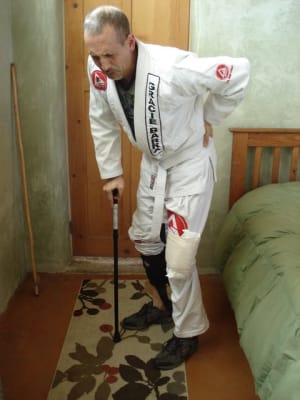
With its emphasis on grappling and ground fighting techniques, BJJ practitioners often find themselves pushing their bodies to the limit during training and competitions. While BJJ can offer numerous physical and mental benefits, it's not without its risks. Injuries are a common occurrence in this sport, but with proper prevention and recovery strategies, you can minimize their impact on your training journey.
Before stepping onto the mat, it's crucial to spend time warming up your body. A proper warm-up increases blood flow to your muscles and prepares your joints for the demands of BJJ. Dynamic stretches, joint rotations, and light cardio exercises are effective ways to get your body ready for training. After your session, cool down with static stretches to improve flexibility and reduce muscle tightness. BJJ relies heavily on technique and leverage rather than brute force. Focusing on proper technique not only enhances your skills but also reduces the risk of injury. Rushing through movements or relying on strength can lead to accidents, so take your time to learn and apply techniques correctly. Proper nutrition and hydration are fundamental for injury prevention and recovery. Ensure you're getting enough nutrients to support muscle repair and growth. Staying hydrated is equally crucial to maintain joint lubrication and overall health.
When injuries do occur, rest is often the first step in the recovery process. Give your body time to heal, and don't rush back into training. Ignoring this phase can lead to chronic injuries and setbacks. Consult a medical professional, preferably one with experience in sports medicine, for an accurate diagnosis and treatment plan. They can provide guidance on managing your injury and help you make informed decisions about your return to training. Once you're cleared to return to BJJ, ease back into it gradually. Modify your training to accommodate your injury, and communicate with your training partners and instructors about any limitations. Safety should always be the top priority.

